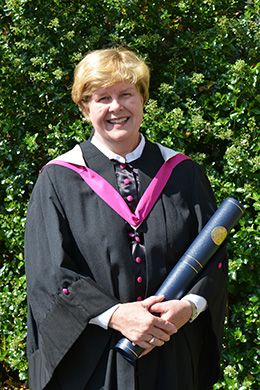Laureation address – Professor Christina Romer
Professor Christina Romer
Laureation Address
Laureator: Professor Chris Hawkesworth
Tuesday 24 June 2014
 Vice-Chancellor, it is my privilege to present Professor Christina Romer for the degree of Doctor of Science, honoris causa.
Vice-Chancellor, it is my privilege to present Professor Christina Romer for the degree of Doctor of Science, honoris causa.
Economics is a discipline that has been increasingly in the news. The financial crash left many wondering whether economic models were in some way flawed, or if they had simply been appropriated in a game of exceptionally high-risk stakes. In many universities, students have begun to question whether what they are taught is relevant to what is actually going on.
The governments of the UK and the US reacted very differently to the financial consequences of the crash. The tight austerity policies of the UK, and a strong sense of indignation that we were being penalised for the mistakes of others, contrasts markedly with the economic stimulus policies of the US.
We are delighted therefore to welcome and to honour a leading member of President Obama’s financial recovery team, Professor Christina Romer. As chair of the President’s Council of Economic Advisers from January 2009 to September 2010, Professor Romer was a member of the President’s Cabinet and closely involved in developing the President’s plan for recovery from the financial crisis. In announcing her appointment in November 2008, then President-elect Obama called Romer ‘one of the foremost experts on economic crises – and how to solve them.’
As Chair of the President’s Council of Economic Advisers, Professor Romer was one of the four economics Principals who met with President Obama daily to design and guide the Administration’s response to the Great Recession. She played a key role in macroeconomic policy, rescue and reform of the financial system, health care reform, and budget policy. She was a primary spokesperson on the economy for the administration, appearing frequently on the evening news, in the financial press, and on the Sunday morning news programmes.
Christina Romer was born in Illinois and attended high school in Ohio. She is a graduate in economics of our partner institution, William & Mary, and she spent a year in St Andrews as part of her studies. She had intended to major in government and go to law school, but as part of the government major, she was required to take a year of economics – and that was it, she was hooked. A wonderful teacher sowed the seed that would ultimately shape US economic policy. Christina was always drawn to history, and so her focus has been on economic history and how that may inform our judgement in the present.
Christina Romer received her PhD from the Massachusetts Institute of Technology, and she is widely known for her research on the Great Depression and the volatile economy of the 1930s and ’40s. More recently, she worked with her husband (Berkeley Economics Professor David Romer, whom we are also delighted to welcome to St Andrews) on the impact of tax policy on government and economic growth. She taught economics and public affairs at Princeton University’s Woodrow Wilson School of Public and International Affairs, before becoming the Class of 1957-Garff B Wilson Professor of Economics at the University of California, Berkeley.
Among her many honours for scholarship and teaching, Professor Romer is the recipient of the John Simon Guggenheim Memorial Foundation Fellowship, the Alfred P Sloan Research Fellowship, the National Science Foundation’s Presidential Young Investigator Award, and the Distinguished Teaching Award at Berkeley – and she has an Honorary Degree from William & Mary. She has served as co-director of the programme in Monetary Economics at the National Bureau of Economic Research and as Vice-President of the American Economic Association. She has also been a visiting scholar on the Board of Governors of the Federal Reserve System.
Christina Romer has highlighted the parallels between President Obama’s response to the economic crisis and President Roosevelt’s response 75 years earlier. These are not dictated by a deliberate effort to follow Roosevelt’s lead, but from the fact that we were facing similar problems and shared core values. The similarities between the two responses included a focus on ‘ordinary families’ and getting people back to work. The opportunity to do this in different ways, however, came in part from the fact that the subject of economics has moved on, and in part because of the tools we now have at our disposal.
As Christina Romer has said, ‘We owe it to ourselves and to future generations to take the trauma of the past two years and channel it into reforms that will help prevent future financial crises. We are so close to a genuinely bipartisan set of sensible new rules of the road for the financial system. We need to see these new rules through to the end, so that your generation and your children’s never have to face another Great Recession’.
A distinguished scholar and a highly influential academic, and an economist who has given us hope; it is a great pleasure to invite you, Vice-Chancellor, to confer on Professor Christina Romer the degree of Doctor of Science, honoris causa.
Category Awards